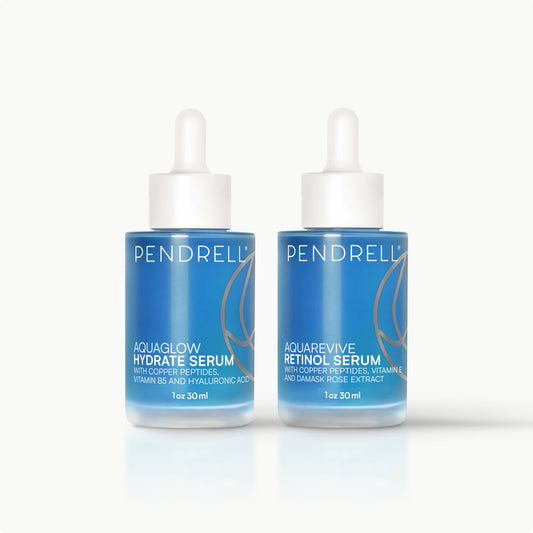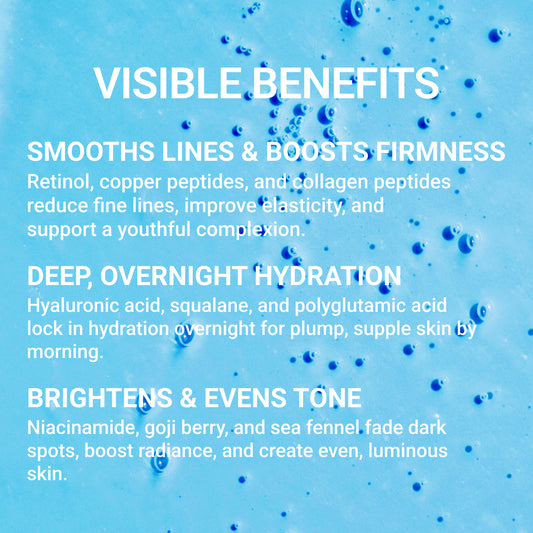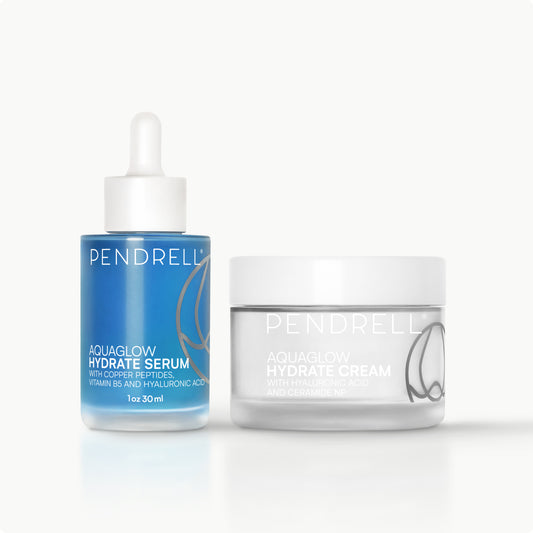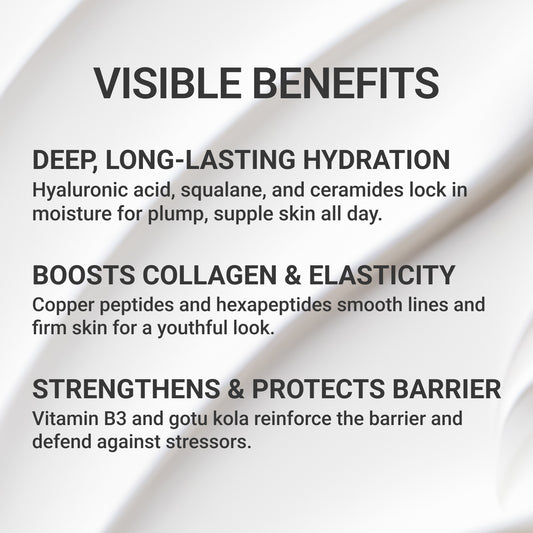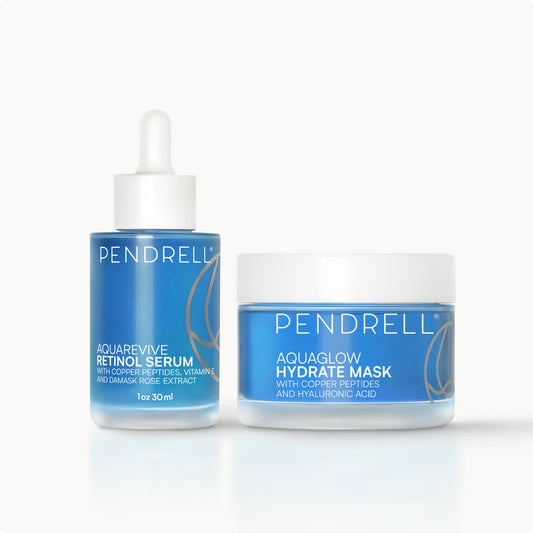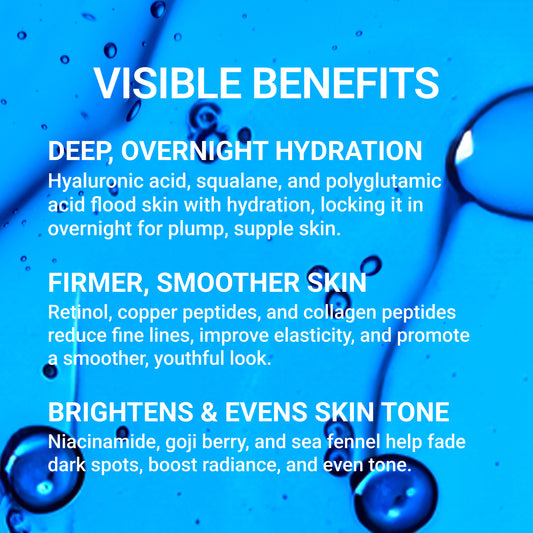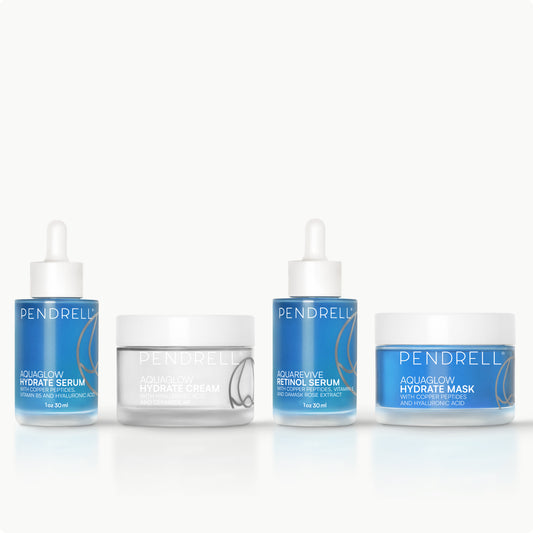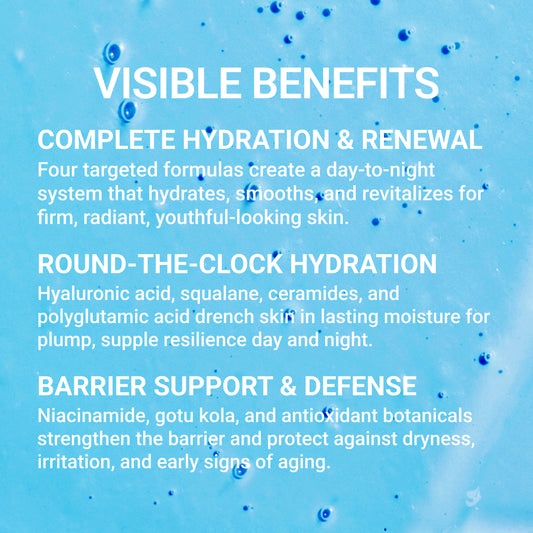

Skin Hydration 101: The Science Behind Hydrated, Glowing Skin
When your skin looks flat, tight, or dull, it is not just “dry,” your skin is likely dehydrated. That means the outer barrier is not holding onto enough water, causing skin to lose its natural bounce and glow. Hydrated skin feels supple, reflects light evenly, and recovers quickly when you smile. Dermatologists describe this constant water loss as transepidermal water loss (TEWL), but you can think of it more simply as skin leaks as tiny “skin leaks” (National Center for Biotechnology Information, PMC).
This guide explains what skin hydration really means, why water loss happens, and how to choose the right ingredients and routines to achieve lasting, glowing skin.
What “hydration” really means
Hydration refers to water in the stratum corneum (the skin’s outer layer). When the barrier’s disrupted, water evaporates faster—leaving rough texture and a tight feel. Harsh cleansers, over-exfoliation, and dry environments all worsen leaks (American Academy of Dermatology).
The solution is not just more cream, it is about adding water into the skin and keeping it there.
The trio that powers real hydration
Dermatology research points to three ingredient categories: humectants, emollients, and occlusives. A well-formulated moisturizer blends all three (Journal of Clinical & Aesthetic Dermatology).
Humectants (like hyaluronic acid, glycerin) – pull water into the skin.
-
Emollients (like squalane) – smooth gaps between skin cells.
-
Occlusives (like petrolatum) – create a breathable seal to slow leaks.
A well-formulated moisturizer blends all three for long-lasting results.
Shop Hydrating Skincare for Healthy, Glowing Skin
HYDRATE SERUM: A potent daily serum for deep hydration, powered by a copper peptide complex, quenches the skin’s thirst for moisture and promotes a refreshed appearance.
HYDRATE CREAM: A moisture-replenishing day cream with hyaluronic acid, squalane, and vitamin B3 that deeply hydrates and restores skin for a healthy, refreshed look.
HYDRATE RETINOL: A revitalizing retinol serum with copper peptide complex hydrates skin, offsets dryness from retinol use, and reduces fine lines and wrinkles for a youthful look.
HYDRATE MASK: A profoundly hydrating mask powered by a copper peptide complex, suited to overnight use, reveals soft, refreshed skin in the morning.
HYDRATE BALM: A rich, vanilla-scented balm with shea butter and vitamin E that deeply nourishes and restores moisture to lips, dry patches, and the under-eye area.
Ingredients that matter most
-
Hyaluronic Acid (HA): Clinically shown to boost hydration and improve elasticity when applied topically.
-
Ceramides: The skin’s “mortar.” Topical ceramides strengthen the barrier and reduce water leaks.
-
Copper Peptides: Signal peptides that support firmness and complement hydration-focused actives.
A simple AM/PM hydration routine
MORNING
- Gentle cleanse.
- Hydrating serum (HA + peptides) on damp skin.
- Moisturizer with ceramides or squalane.
- Broad-spectrum SPF (UV damage weakens the barrier).
EVENING
- Cleanse.
- Hydrating serum again (damp skin = better humectant performance).
- Moisturizer.
- Optional: a thin occlusive layer over cheeks or lips if skin feels tight.
Pro tip: Apply serum first, moisturizer second. That order adds water and keeps it from escaping.
Lifestyle habits that help lock in hydration
- Use a humidifier in winter or dry climates.
- Keep showers short and lukewarm; apply serum within 60 seconds after toweling off.
- Eat omega-3-rich foods (salmon, chia, flaxseeds) to help strengthen barrier lipids.
- Prioritize consistent sleep, since nighttime is when your barrier does most of its repair work.
FAQs About Skin Hydration
Q1: Can oily skin be dehydrated?
Yes. Oil (sebum) is not water. Even oily skin can leak hydration and benefit from lightweight serums.
Q2: How long until results show?
Skin often looks plumper the same day, but barrier repair (less tightness, smoother texture) can take 2–4 weeks.
Q3: Does drinking water hydrate skin?
It supports overall health, but topical hydrating serums and barrier-strengthening creams directly prevent leaks and improve glow.
Key Takeaway on Skin Hydration
Hydrated, glowing skin comes down to one thing: balancing water in the skin with keeping that water from escaping. When your skin barrier is supported with the right ingredients such as hyaluronic acid, ceramides, and copper peptides, you reduce water loss, improve smoothness, and restore elasticity. Pair a simple AM and PM routine with good lifestyle habits, and hydrated skin becomes a long-term result, not a quick fix.
Build your own hydrating skincare routine with Pendrell Skincare

